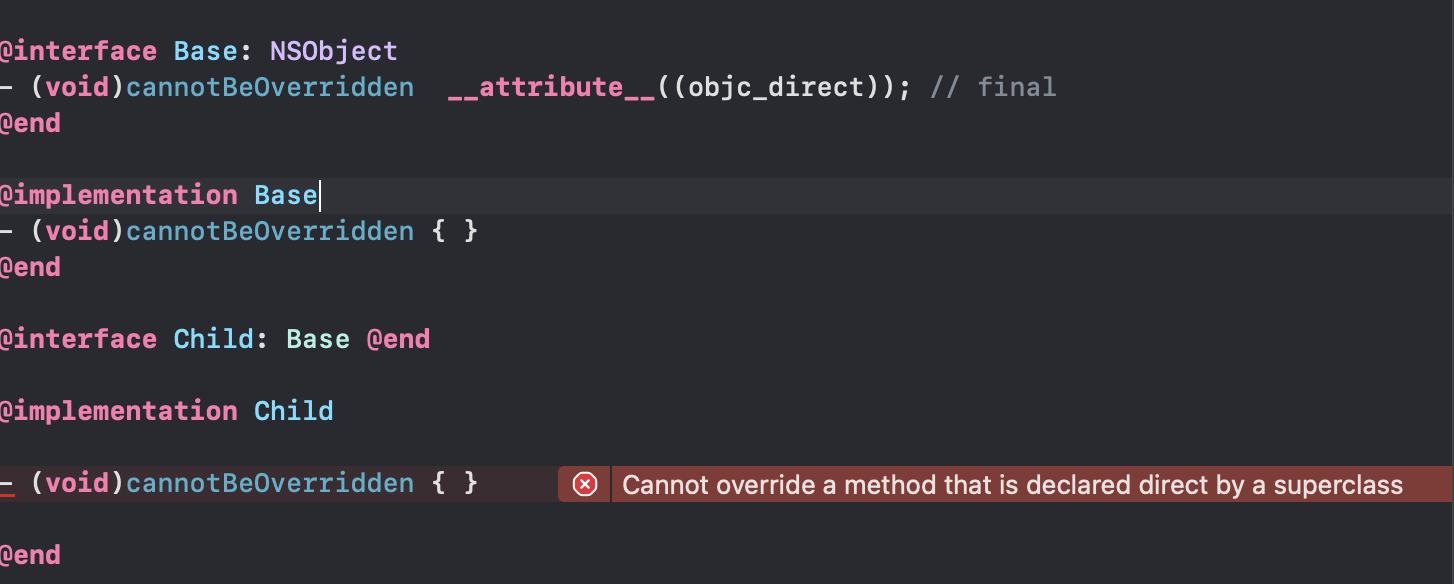As has been said a number of times, you can't.
However, if you are making a library (which is the only case in which I could see this being relevant, anyway) there are a few steps you can take. Well, one, really.
Write, in the documentation of the class, that "This class is not intended for subclassing." (ref. NSIndexSet) or "Do not override this method." (ref. +[NSApplication sharedApplication].
As a way of explanation, it is worth noting that (pretty much) everything that happens in Obj-C, and that separates it from C, happens at runtime, and the runtime is, so to speak "Right There". Any piece of code can inspect, mutate or pervert the runtime at their leisure, making Obj-C a terribly powerful language; especially with regards to its "meta-language" structure.


java.lang.Stringbeingfinalimprove security? – Bedwarmer